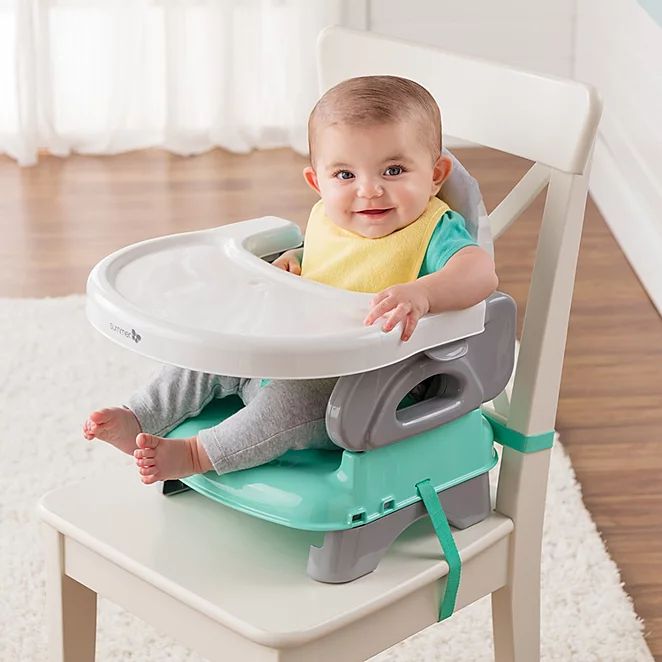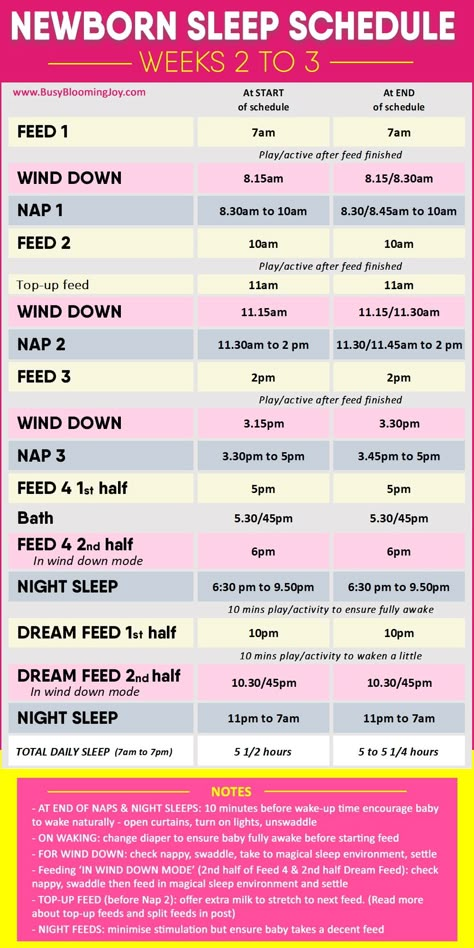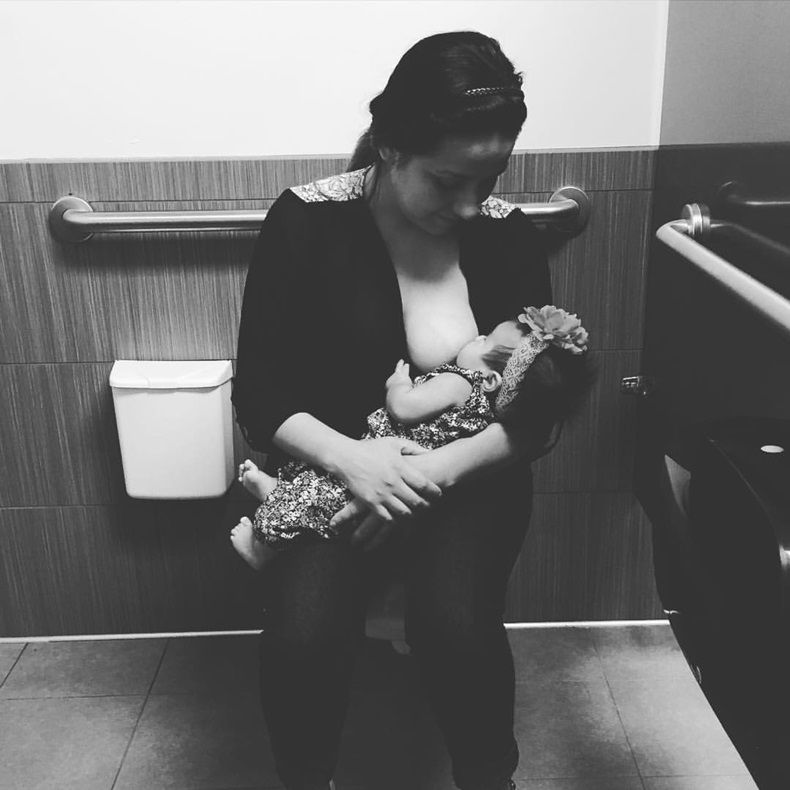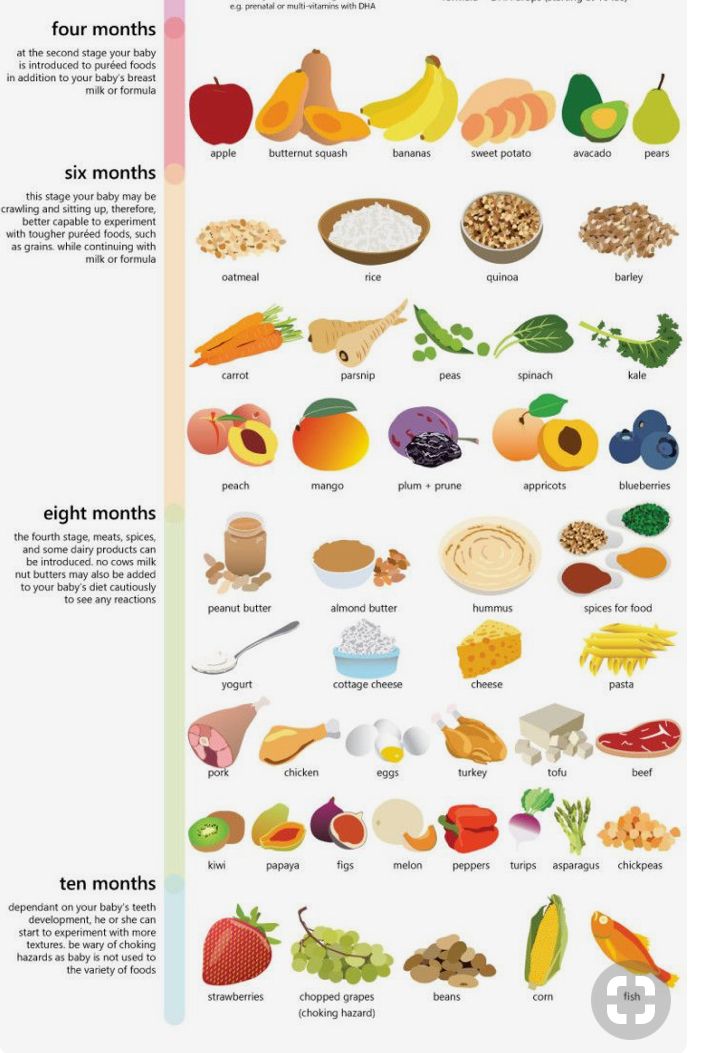Baby comfort feeding at night
How to Stop Comfort Nursing at Night
Does your baby want to stay latched on all night, or only stops crying when he’s breastfeeding? Learn how to stop comfort nursing at night!
Comfort nursing can come with a bag of mixed emotions.
You’re quickly realizing that, while comfort nursing works for other moms, you’re eager to do away with it once and for all. Nursing sessions are frequent and long, since your baby relies on them to sleep. And while he can likely sleep through the night, he won’t go back to sleep without nursing.
In fact, if it were up to him, he’d probably want to latch on all night (you even suspect he comfort nurses more than he actually eats out of hunger). He’ll only stop crying when he’s finally breastfeeding. Yet as much as he falls asleep while nursing, he wakes up right when you put him down in the crib.
It’s not easy when comfort nursing seems to be the only thing that can calm him down. He’s always attached to you, to the point that your partner can’t even soothe him back to sleep and give you a break. Giving him solids or using a pacifier don’t always work. How can you help him stop associating nursing with sleeping?
How to stop comfort nursing at night
If you’ve felt frustrated for wanting to know how to stop comfort nursing at night, you’re not alone. It’s okay to want a full night of sleep without feeling guilty for not wanting to breastfeed all night.
I hear you, friend.
At this point in your parenting journey, it’s hard not to crave a bit more sleep now that he’s an older baby. You’re past the early days of the newborn stage, yet still find yourself dealing with a night waking multiple times.
Don’t worry—with consistent and compassionate sleep training, you can help your little one fall asleep. As always, check with your baby’s pediatrician to see if he’s ready to sleep through the night. Then, take a look at these tips to help you stop comfort nursing:
1.
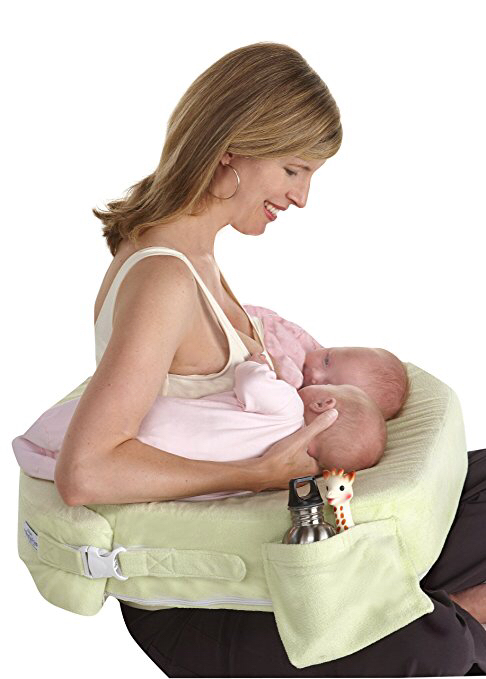 Don’t let your baby fall asleep nursing
Don’t let your baby fall asleep nursingThe first step in helping your baby stop comfort nursing at night is to break sleep associations between nursing and sleeping. Right now, he has a habit of needing to nurse to fall asleep, but that doesn’t mean he can’t sleep any other way. He simply has to experience what it’s like to fall asleep on his own.
If he starts to drift off and he still has more to eat, try to keep him awake. You can tickle him, change positions, talk to him, anything to keep him awake while he eats. You might even want to move nursing to the beginning of the bedtime routine—before you give him a bath, for instance.
Free resource: You can teach him to self soothe and sleep on his own. Whether you’ve tried to teach him in the past or are just now considering it, take a look at these 5 key mistakes to avoid. Join my newsletter and grab this important resource below—at no cost to you:
2. Nurse after wake ups
Another way to stop comfort nursing is to breastfeed your baby after he wakes up, not before falling asleep.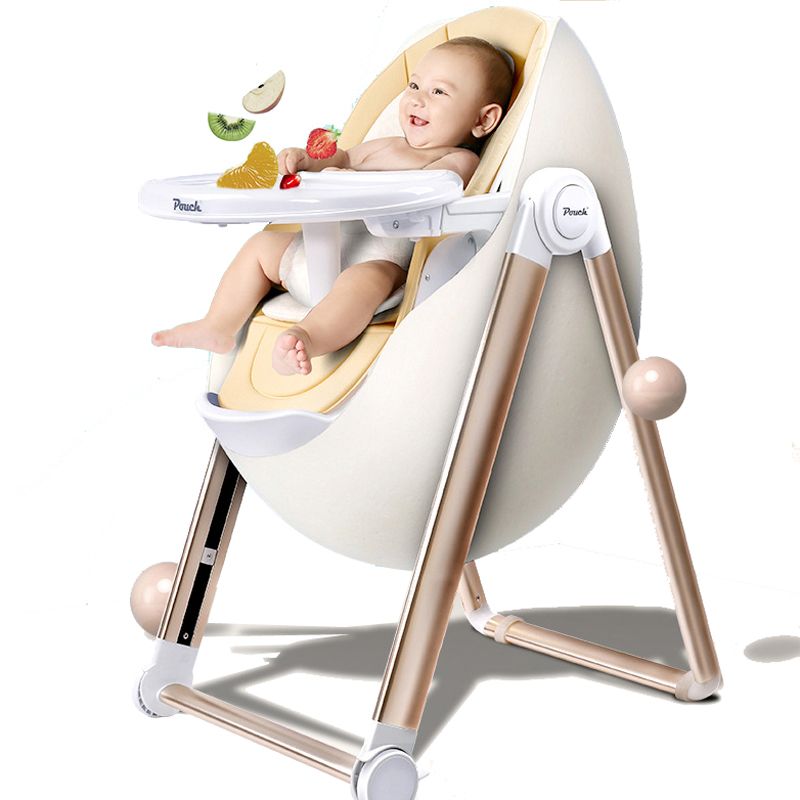 As easy it is to put him to sleep by nursing, this also encourages the habit of nursing to snooze.
As easy it is to put him to sleep by nursing, this also encourages the habit of nursing to snooze.
Instead, feed him after he wakes up.
His first feed could be right when he gets up for the day after nighttime sleep. Then, instead of feeding him before naptime, feed him after he wakes up from these naps. The only exception would be the bedtime feed, but as mentioned above, try to prevent him from falling asleep while nursing.
An added benefit to nursing after waking up is that he’ll be awake while his body digests what he consumed. No longer will he have fitful sleep and gas issues from lying down after eating. Now he can be alert and upright after a feed.
3. Check in at set times
So, you didn’t nurse your baby to sleep—in fact, you set him down completely awake. What do you do when he starts to cry?
Set a timer for five minutes after you close the door. If he’s still crying when the timer goes off, go into his room and reassure him that he’s doing a good job falling asleep and that you’re right in the next room. Keep this brief—30 seconds at most.
Keep this brief—30 seconds at most.
Then, set your timer again, but this time for 10 minutes. Should he still be crying at this point, check in on him again, repeating what you had done earlier. And finally, set your timer for 15 minutes if he’s still crying. Check in on him in 15-minute intervals moving forward if needed, until he falls asleep.
Do the same check-in process any time he wakes up when he’s not supposed to, from middle of the night to early morning wake ups. You’re giving him the chance to learn how to fall asleep on his own while still reassuring him that you’re right here, cheering him on.
Tip: Make his room conducive for sleep by adding white noise and hanging darkening curtains. Both can help lengthen his sleep.
4. Gradually wean from nighttime feedings
What do you do if he still relies on nighttime feedings for milk, and not just comfort? After all, he could be drinking breast milk in the beginning before he tapers off to comfort nursing. Cutting feedings cold turkey would mean one hungry baby.
Cutting feedings cold turkey would mean one hungry baby.
The first change is to wake him up for feedings, instead of waiting for him to cry for them. Right now, he associates crying with getting fed, but you can beat him to the punch by waking him up to feed. As strange as it is to wake him up when he hardly sleeps, this helps him break that association.
Set your alarm to about 30 minutes before he typically wakes up for a feed. If he tends to wake up at 10pm and 2am, set your alarm for 9:30pm and 1:30am. You’re feeding him before he tends to wake up crying.
What do you do if he doesn’t have a particular pattern or regular times that he cries? Take the average of the times he has woken up the past few nights and stick to those times.
The next change is to gradually decrease the amount of milk he consumes at night, and adding that amount the following day.
Let’s say you feed him twice a night for 20 minutes each. On the first night, feed him like you usually do. Then the next night, decrease the amount by two minutes each nursing session (in this example, feed him for 18 minutes each breastfeeding session). On the third night, feed him for 16 minutes each, and so forth.
Then the next night, decrease the amount by two minutes each nursing session (in this example, feed him for 18 minutes each breastfeeding session). On the third night, feed him for 16 minutes each, and so forth.
And finally, you’ll want to make up for that “lost” milk by giving him what you had decreased the following day. Since you fed him twice for 18 minutes each, you can increase two of his daytime feeds by two minutes. That way, he can adjust to taking in his calories during the day (and sleeping through the night).
Want more details? Get more tips on dropping night feeds.
5. Comfort in other ways
I don’t know about you, but I felt compelled to stop my baby’s crying the minute I’d hear it. I almost felt like it was my duty to make him stop crying, that this was what moms are supposed to do.
But I realized that we tend to stifle their tears more than we show compassion for them. We get frustrated when they won’t stop crying, allowing our own negative feelings to affect them.
Nursing isn’t the only way we can provide comfort. We can do so by holding them and showing empathy for how they feel. By helping them learn to self soothe and sleep on their own. By being more patient and present, not angry or disappointed.
Conclusion
Comfort nursing works for many moms and their infants, but not for all, so don’t feel bad if you want to stop it. In fact, you might realize that you enjoy motherhood and have a stronger bond with your baby once you do.
The first step is to avoid letting your baby fall asleep while nursing, as this only reinforces the habits you’re trying to break. Instead, nurse him after waking up so that he doesn’t rely on feeding to fall asleep.
After putting him down awake, check in at set intervals until he falls asleep. Gradually wean him from night feedings so that he can take in his nourishment during the day and sleep all night. And finally, comfort him in other ways like showing compassion and empathy.
You can help your baby fall asleep—all without the constant comfort nursing he has grown used to.
Get more tips:
- 6 Month Old Waking Every 2 Hours? Here’s What to Do
- 4 Reasons Your Baby Never Seems Satisfied After Breastfeeding
- How to Stop Your Baby from Snacking on the Breast
- 5 Tips to Stop the Pain After Breastfeeding
- 6 Ways Dads Can Support Breastfeeding Moms
Don’t forget: Join my newsletter and grab this resource below—at no cost to you:
Breastfeeding to Sleep and Other Comfort Nursing • KellyMom.com
Many mothers feel guilty for breastfeeding their baby for comfort or as they drift off to sleep. Breastfeeding your child to sleep and for comfort is not a bad thing to do– in fact, it’s normal, healthy, and developmentally appropriate. Most babies nurse to sleep and wake 1-3 times during the night for the first year or so. Some babies don’t do this, but they are the exception, not the rule. Many children, if given the choice, prefer to nurse to sleep through the second year and beyond.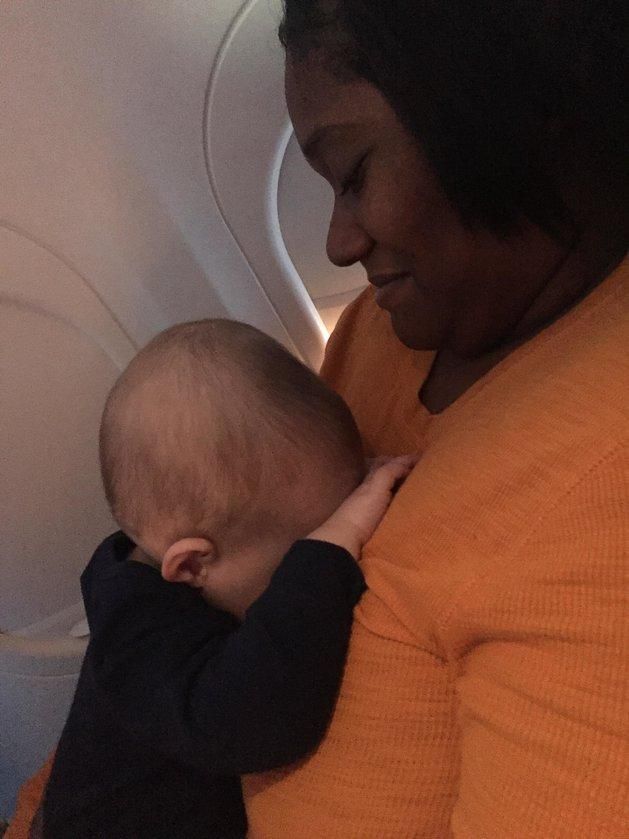 I’ve never seen a convincing reason why mothers shouldn’t use this wonderful tool that we’ve been given.
I’ve never seen a convincing reason why mothers shouldn’t use this wonderful tool that we’ve been given.
Breastfeeding is obviously designed to comfort and help a child sleep. Breastfeeding calms a child and can even help your child handle stress better when not breastfeeding (Beijers et al, 2013). Sucking releases the hormone cholecystokinin (CCK) in both mother and baby, which results in a sleepy feeling (Uvnäs-Moberg et al, 1993). In addition, breastmilk also contains sleep-inducing hormones, amino acids, and nucleotides, whose concentrations are higher during the night and may actually help babies establish their own circadian rhythms (Sánchez et al, 2009, Cohen et al, 2012).
Now infants can get
all their vitamin D
from their mothers’ milk;
no drops needed with
our sponsor's
TheraNatal Lactation Complete
by THERALOGIX. Use PRC code “KELLY” for a special discount!
If breastfeeding your child to sleep and/or nursing your child for comfort is working for YOU and your family, that’s all that really matters! Breastfeeding is not only nourishing; it’s also nurturing.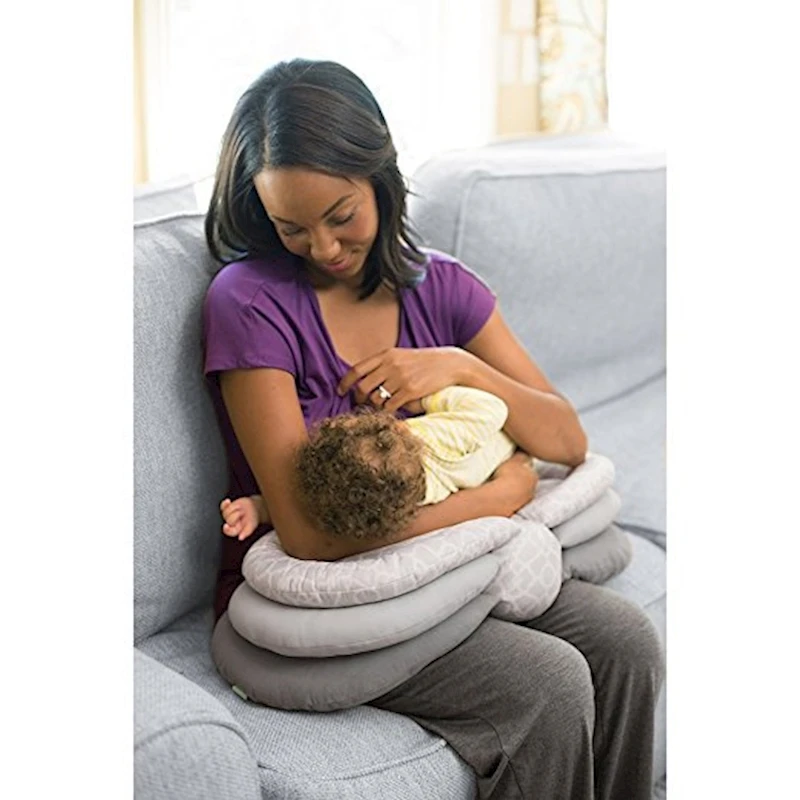 Your breast is a wonderful place of comfort and security to your child, not just a “feeding trough”. The time spent breastfeeding your child is a very short period in the total life of your child, but the memories of your love and availability will last him a lifetime. Trust that your child will fall asleep on his own in time, and enjoy every sleepy moment while it lasts.f
Your breast is a wonderful place of comfort and security to your child, not just a “feeding trough”. The time spent breastfeeding your child is a very short period in the total life of your child, but the memories of your love and availability will last him a lifetime. Trust that your child will fall asleep on his own in time, and enjoy every sleepy moment while it lasts.f
Following are some Frequently Asked Questions…
- My child sometimes nurses for comfort, when he’s obviously not hungry. Is this a problem?
- Am I creating a bad habit by allowing baby to breastfeed to sleep?
- What about letting baby “cry it out?”
- I’ve been told that my child will NEVER learn to go to sleep on his own if we don’t teach him…
- How will my child go to sleep when I’m not there to breastfeed him, or after he weans?
- How can I gently encourage my child to fall asleep without breastfeeding (and without crying)?
- My child wants to comfort nurse the entire time he’s napping! How can I slip away without waking him?
- My toddler wants to comfort nurse forever when he’s trying to fall asleep.
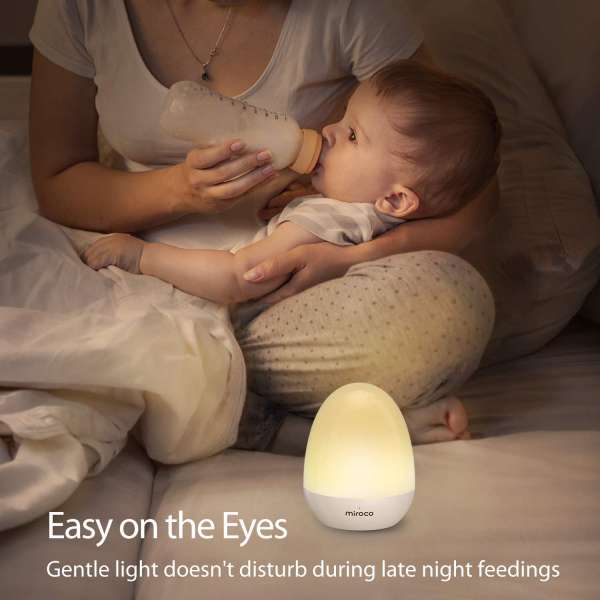
- Additional resources
My child sometimes nurses for comfort, when he’s obviously not hungry. Is this a problem?
Comfort nursing is normal. If baby were not comfort nursing he would need to be sucking on his hands or on a pacifier. The breast was the first pacifier and the one that all others are modeled after, so don’t be afraid to allow baby to use it in this way. There are studies that show that comfort nursing is healthy for your child, too. All babies need to suck – some more than others. It ensures that they survive. If your baby seems to be comfort nursing all the time and this is more than you can handle, keep in mind that this will probably ease some as time goes by. In the meantime, you may find that carrying baby in a sling or a carrier on your body will lessen his need to comfort nurse so much. He may just need to be close to you at times and seeks out nursing as a way to do that.
Comfort nursing serves a purpose, too. Studies seem to indicate that this type of sucking overall decreases a baby’s heart rate and lets him relax. It seems to have a very positive effect on his whole physical and emotional well-being. Don’t be afraid to allow this type of breastfeeding. Breastfeeding is more than just imparting fluids and nourishment. It’s a way to nurture your child as well.
It seems to have a very positive effect on his whole physical and emotional well-being. Don’t be afraid to allow this type of breastfeeding. Breastfeeding is more than just imparting fluids and nourishment. It’s a way to nurture your child as well.
Am I creating a bad habit by allowing baby to breastfeed to sleep?
Your child’s desire to nurse to sleep is very normal and not a bad habit you’ve fostered. Don’t be afraid to nurse your baby to sleep or fear that you are perpetuating a bad habit. Baby often will seek the breast when sleepy or over-stimulated because it’s a comforting and familiar place to him. To associate the breast with wanting to relax enough to go to sleep makes perfect sense. As adults, we also do things to relax ourselves so we can go to sleep: we read, watch TV, get something warm to drink or a snack, deep breathe, get all snug under the covers, etc. Breastfeeding does the same thing for your baby.
For many babies at the height of exploration or distractibility, nighttime or naptime can often be the ONLY time the baby will nurse well.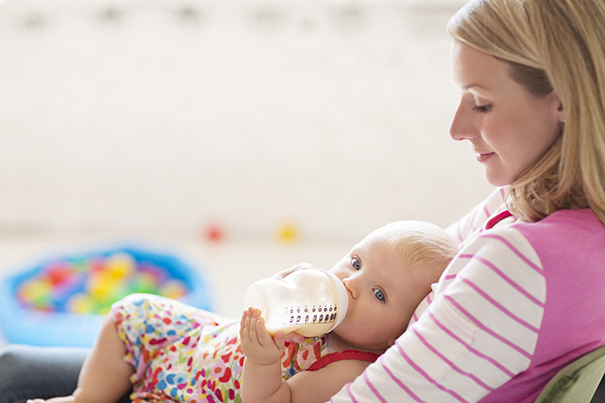 Allowing him to nurse at these times when he is more focused on nursing and less intent on other things helps ensures that he gets enough milk, that your supply is maintained, and that the nursing relationship goes on. Don’t be afraid to nurse at these times or fear that you are perpetuating a bad habit. Instead, take advantage of these times for better nursing.
Allowing him to nurse at these times when he is more focused on nursing and less intent on other things helps ensures that he gets enough milk, that your supply is maintained, and that the nursing relationship goes on. Don’t be afraid to nurse at these times or fear that you are perpetuating a bad habit. Instead, take advantage of these times for better nursing.
The sleep issue is not merely a matter of good versus bad habits. It is much more an issue of culture and lifestyle and expectations. Here are three approaches to parenting issues:
- Forcing baby to change to fit the parent’s lifestyle is one approach. Our American culture tends not to be very baby friendly, and rarely makes accommodations for breastfeeding babies. The current trend, seen in many popular books and parenting magazines, is to force baby to do all of the accommodating so that we experience as little change in our pre-baby lifestyle as possible; for example, baby MUST sleep through the night so that we get unbroken sleep and a “good” baby is seen as one who makes as few demands on his parents as possible.

- Another approach is to try to approximate the mothering style of traditional societies and let the parents do all the accommodating. This approach can be very difficult to pull off without lots of support and changes of expectations in the people around us.
- A third approach is to do as much accommodating on the parental side as possible, and then to “ask” baby to accommodate the last part of the gap. This is an approach that can work for many families. With this approach, parents do all they can to be sensitive to their baby’s needs, and only ask baby to accommodate when nothing else truly works.
What about letting baby “cry it out?”
There are two schools of thought about getting babies to sleep. One is a rather rigid method of “sleep training” where a baby is put down awake in a crib and left to cry himself to sleep so that he learns to “self-soothe” and doesn’t develop sleep associations that require someone else to put him to sleep. This method has been around since the 1890’s and was dreamed up by male university sleep laboratory researchers.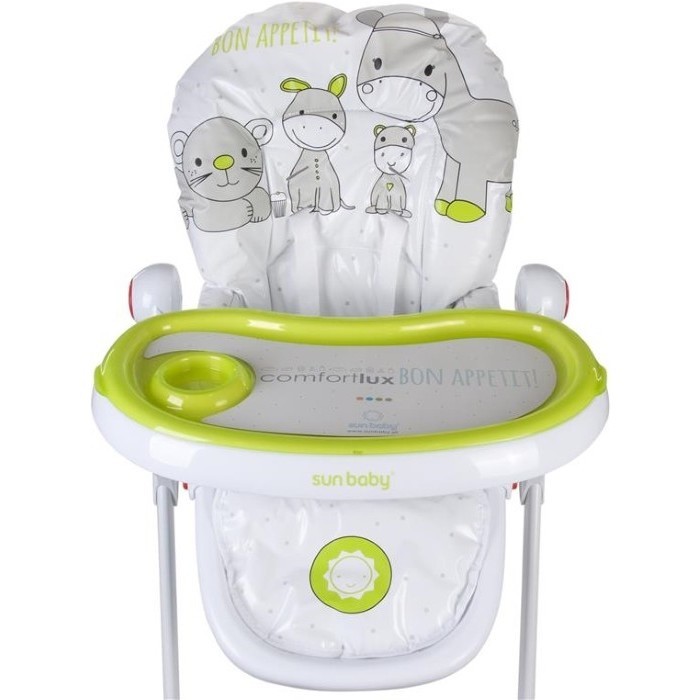 Many of the popular “sleep training” methods of today are modified versions of this (allowing baby to cry for progressively longer periods without comforting him, instead of just leaving him to cry until he gives up and stops).
Many of the popular “sleep training” methods of today are modified versions of this (allowing baby to cry for progressively longer periods without comforting him, instead of just leaving him to cry until he gives up and stops).
I can’t, with good conscience, recommend the cry-it-out method for getting baby to sleep. Anyone who advises you to let your baby cry until he gives up and falls asleep is focusing on the baby’s behavior (going to sleep by himself) and not on how the baby feels in the process. In my opinion, this “sleep training” often creates an unhealthy attitude about sleep: after going through this training, baby tends to view sleep as a fearful state to enter into and to remain in. Parents often need to “retrain” baby if there is any break in the usual routine. In addition, it can condition parents to ignore baby’s cries, and break down the relationship of trust between parent and child.
Younger babies, in particular, do not have that sense of “object permanence” and if mom leaves them to cry, they are developmentally unable to realize that she is just in the next room. All baby knows is that he has been abandoned and that mom is not there. A young baby can only express his needs through crying. A baby who is left to cry alone will eventually stop crying because he has abandoned all hope that help will come: as far as he can tell, no one cares enough to listen, or come and provide comfort. In the book Our Babies, Ourselves: How Biology and Culture Shape the Way We Parent, anthropology professor Meredith Small writes, “When signals are missed, babies stop signalling; they withdraw; they suck their thumbs; they turn away; they try to right the system themselves by not sending out any more signals.” The baby protects himself by shutting down, and “accepts” the situation because he has learned that a response is not forthcoming. Crying is also hard, physically, on baby: it can lead to hoarseness that can last for days; the digestive system is upset; stress hormones rise; heart rates can climb to levels over 200 beats per minute; and oxygen levels in the blood are diminished.
All baby knows is that he has been abandoned and that mom is not there. A young baby can only express his needs through crying. A baby who is left to cry alone will eventually stop crying because he has abandoned all hope that help will come: as far as he can tell, no one cares enough to listen, or come and provide comfort. In the book Our Babies, Ourselves: How Biology and Culture Shape the Way We Parent, anthropology professor Meredith Small writes, “When signals are missed, babies stop signalling; they withdraw; they suck their thumbs; they turn away; they try to right the system themselves by not sending out any more signals.” The baby protects himself by shutting down, and “accepts” the situation because he has learned that a response is not forthcoming. Crying is also hard, physically, on baby: it can lead to hoarseness that can last for days; the digestive system is upset; stress hormones rise; heart rates can climb to levels over 200 beats per minute; and oxygen levels in the blood are diminished.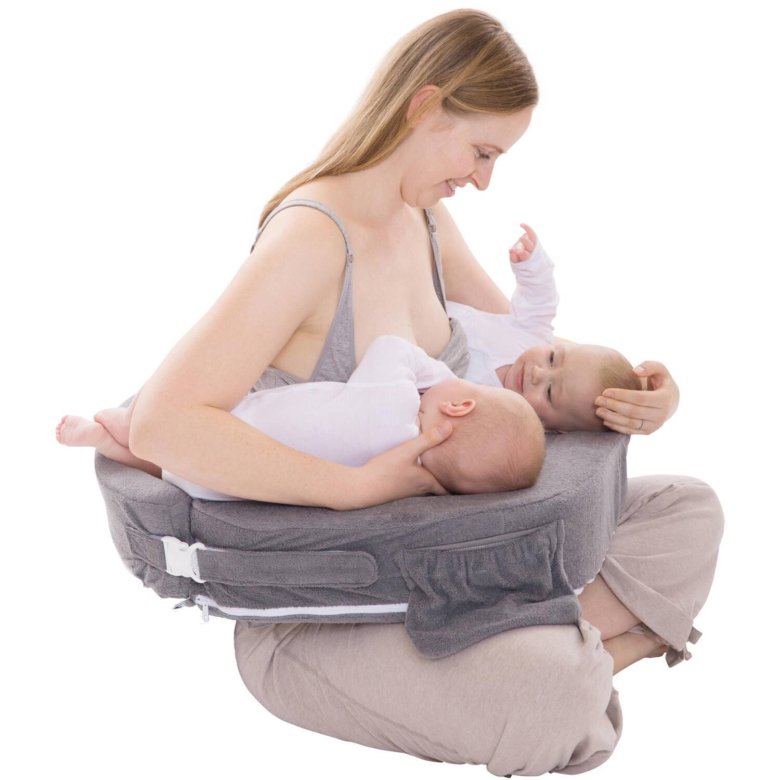
Another school of thought, which I subscribe to, discourages viewing sleep as a state you can force a baby into. Instead, it’s best to create a sleep-inducing environment that allows sleep to overtake the baby. The process of breastfeeding itself regulates baby’s temperature and heart rate and lowers his blood pressure, and puts him to sleep. This helps your baby develop a healthy attitude about sleep, where baby views sleep as a safe, comforting, natural state.
I’ve been told that my child will NEVER learn to go to sleep on his own if we don’t teach him…
Never? It is normal, natural and healthy for your child to fall asleep nursing. Breastfeeding children fall asleep so quickly – how can anything so perfectly designed be worrisome? I’ve read a lot about babies’ sleep patterns, and I’ve talked to many moms about this. Both my reading, my personal experience, and the experiences of other moms has convinced me that falling asleep without breastfeeding is a developmental milestone that your child will reach when he is ready.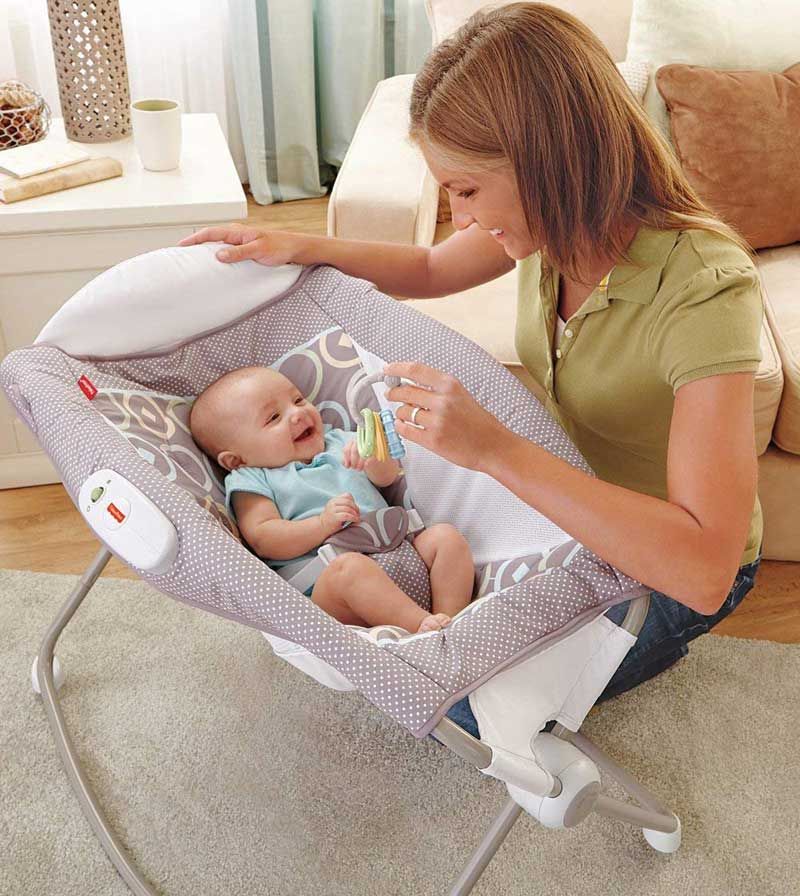 The first step often comes when your baby starts to nurse to sleep then stops nursing, rolls away and goes to sleep on his own. Or perhaps he will fall asleep in Daddy’s arms when he’s walking with him. These incidents may not happen very often at first, but they are the first step and do make you realize that it IS possible for your child to fall asleep by himself.
The first step often comes when your baby starts to nurse to sleep then stops nursing, rolls away and goes to sleep on his own. Or perhaps he will fall asleep in Daddy’s arms when he’s walking with him. These incidents may not happen very often at first, but they are the first step and do make you realize that it IS possible for your child to fall asleep by himself.
There are countless numbers of children who have been nursed to sleep and nursed during the night from birth who eventually learn to fall asleep on their own without the breast. You don’t have to teach them to do this. They reach this as a milestone – when they’re physically, developmentally, and emotionally ready. You can try to speed this process along by putting baby to bed before he’s asleep, but always nursing him to sleep will not keep him from learning this on his own.
My daughter started to occasionally fall asleep on her own (or with her Dad) when she was around 11-12 months.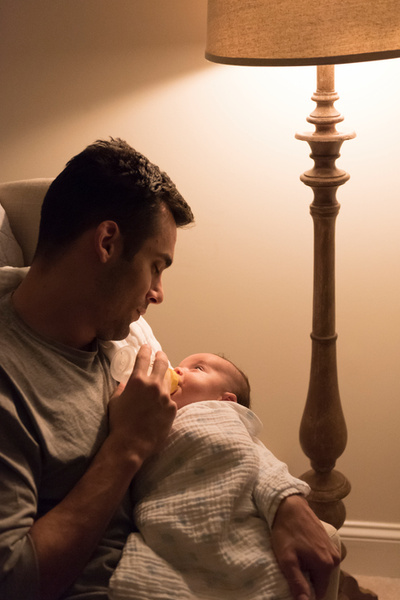 Knowing that she could go to sleep without me right there really helped, even though she didn’t do it too often. As time passes, she’s fallen asleep without nursing more and more. We did not “teach” her to do this, or even particularly encourage it. It has simply been a natural developmental progression that came about as she was ready for it.
Knowing that she could go to sleep without me right there really helped, even though she didn’t do it too often. As time passes, she’s fallen asleep without nursing more and more. We did not “teach” her to do this, or even particularly encourage it. It has simply been a natural developmental progression that came about as she was ready for it.
How will my child go to sleep when I’m not there to breastfeed him, or after he weans?
Many moms are worried about how their child will go to sleep when he enters daycare or weans, and feel that they must teach him to sleep independently before this time. This is really not necessary, and can add lots of stress to something that is already a big transition for your child. Children are very adaptable and will find new ways to go to sleep when mom is not there. Your child and his other caregiver(s) will work things out just fine, and they will find new ways to comfort that work great for both of them. The same will happen when your child weans.
How can I gently encourage my child to fall asleep without breastfeeding (and without crying)?
First, remember that if breastfeeding to sleep is not a problem for you, your child will discontinue it on his own without help from you. If you’d like to try to accelerate the process, read on…
Try transitioning from breastfeeding your child totally to sleep, to breastfeeding him almost asleep; then to just really relaxed, and then eventually to no breastfeeding at all to go to sleep. The process may take a long time, or it may not. If you’ll start out taking it as gradually as you possibly can, it will probably work better and you’ll avoid possible problems and frustrations for both you and your baby.
You might start by lying down with him in the bed he will sleep in for naps, or on the floor, etc. – wherever he will be sleeping. Don’t insist that he sleep in the crib if he doesn’t want to. Your goal at this point it to get him comfortable enough and secure enough to go to sleep on his own.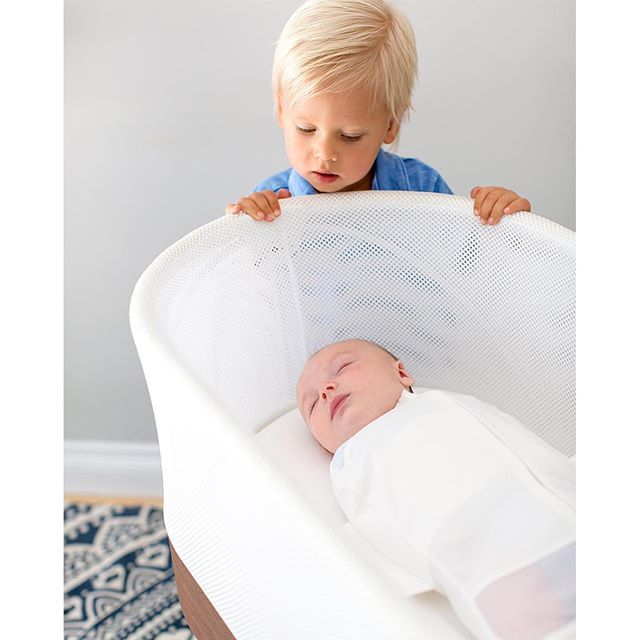 You don’t want that made more difficult by any fears of being alone in his crib.
You don’t want that made more difficult by any fears of being alone in his crib.
After he is okay with breastfeeding to sleep in this way, you might try nursing him till he’s almost asleep; eyes closed, heavy breathing but not completely out. Then transition to nursing just till he is relaxed and settled from all the activity prior to the nursing session. When he has done well with you leaving after only nursing this long, then you can try to transition him to going to sleep entirely on his own. You might offer him a favorite toy, book, etc. Give him a kiss and a hug and tell him “night night” in a way that is upbeat and positive. Try to have naptime and bedtime at the same time every day with a routine that he can begin to recognize and expect. For example, have naptime every day after lunchtime or have bedtime every night after snack or bathtime. That way he knows what to expect. You might even remind him that naptime or bedtime are coming and talk excitedly about it. For an older baby or toddler, ask him what he would like to take to bed with him; talk about the place he will sleep, how nice it is, etc. Allow him to have the light on if he wishes or the door open or whatever he wants in the bed with him – don’t fight him on the little things.
Allow him to have the light on if he wishes or the door open or whatever he wants in the bed with him – don’t fight him on the little things.
Again, your goal is to get him to a comfortable enough place that he feels secure enough to go to sleep without nursing and by himself.
My child wants to comfort nurse the entire time he’s napping! How can I slip away without waking him?
It’s really not unusual for children to wish to breastfeed while napping. They do grow out of it eventually. There are a couple of things that you could try to help you to slip away.
Depending upon how big he is, you might let him continue to sleep latched on, but have him in a carrier (sling, wrap, etc.) so you can get up and do things while he sleeps.
You can also work on slipping away after your child goes to sleep. Make sure he is deeply asleep and no longer swallowing before you try this (you may have to wait a while). He’ll then be doing what we sometimes call “flutter sucking” or comfort sucking, a really light suck. When a baby is in a light sleep, you’ll see facial grimaces, partially clenched fists, muscle twitches, fluttering eyelids, and overall tense muscle tone. You can recognize deep sleep by an almost motionless face, regular breathing, still eyelids, and especially the limp-limb sign — arms dangling weightlessly at baby’s sides, hands open and muscles relaxed.
When a baby is in a light sleep, you’ll see facial grimaces, partially clenched fists, muscle twitches, fluttering eyelids, and overall tense muscle tone. You can recognize deep sleep by an almost motionless face, regular breathing, still eyelids, and especially the limp-limb sign — arms dangling weightlessly at baby’s sides, hands open and muscles relaxed.
Once your child is in a deep sleep, try and slip away very slowly. One thing that sometimes helps is to slip a finger in his mouth near the nipple, then ease the nipple out so he is just sucking your finger. Then you can ease your finger out of his mouth – it helps to put a little pressure on baby’s bottom lip as you do this. By doing this, you can often keep baby from waking. Putting something right up next to him that has mom’s scent (a t-shirt, pillow, or an animal he sleeps with) also helps.
My children often seem to detect the loss of body contact and warmth when I get up. As I’m getting up, I keep my hand(s) on baby for a few moments, then *gradually* take them away so the transition isn’t so sudden.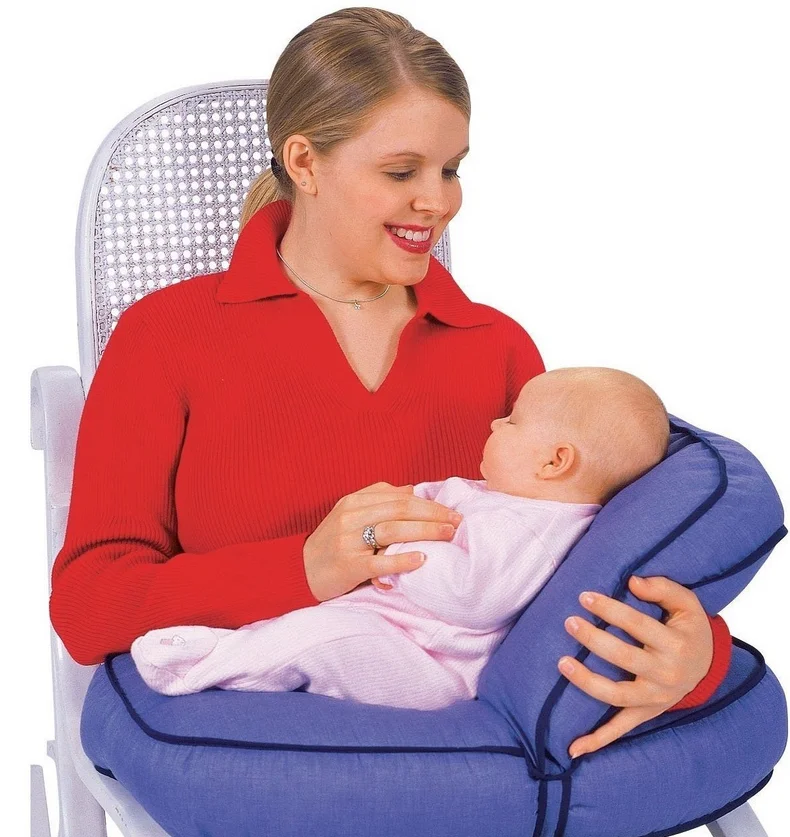 Baby will usually stir when I get up, but often goes back to sleep if I keep my hands on him till he gets still again. If your baby is older, it can also be helpful to put a hard pillow (preferably a warm one that you’ve been sleeping near) beside him in the spot where you were sleeping so that he doesn’t feel empty space if he reaches out in his sleep. If baby was resting his feet on me (common with mine), then I’ll sometimes even put a pillow under his feet. With an older baby/toddler, I lay him down on top of my pillow if I’m trying to put him down on the bed when he’s already asleep. (Keep in mind that it’s not safe to use pillows with young babies due to SIDS risk.)
Baby will usually stir when I get up, but often goes back to sleep if I keep my hands on him till he gets still again. If your baby is older, it can also be helpful to put a hard pillow (preferably a warm one that you’ve been sleeping near) beside him in the spot where you were sleeping so that he doesn’t feel empty space if he reaches out in his sleep. If baby was resting his feet on me (common with mine), then I’ll sometimes even put a pillow under his feet. With an older baby/toddler, I lay him down on top of my pillow if I’m trying to put him down on the bed when he’s already asleep. (Keep in mind that it’s not safe to use pillows with young babies due to SIDS risk.)
It’s often easier to slip away during a nap when you’re both lying down. If you’re nursing sitting up, the position change may be waking him – you might try nursing him on a pillow in your lap so you can just transfer him to a bed or the floor without moving him around as much (again, younger babies should not be sleeping on or near pillows). If baby wakes when you put him in his crib, you might try moving him to a baby-safe bed or pallet on the floor, instead of his crib – he might nap better in a different place.
If baby wakes when you put him in his crib, you might try moving him to a baby-safe bed or pallet on the floor, instead of his crib – he might nap better in a different place.
This article has additional tips for helping baby stay asleep: Let Sleeping Babies Lie – please…
My toddler wants to comfort nurse
forever when he’s trying to fall asleep.Sometimes we start to question ourselves (again, perhaps) when we have a breastfeeding toddler who wants to hang out at the breast for hours at bedtime, without ever quite falling asleep. Have you ever had one of those nights when you keep trying to slip away, thinking your toddler is asleep, to be interrupted by a sleepy protest every time you try to unlatch? The later at night it is, the more you can start to doubt yourself and wonder if “they” might have been right about that “bad habit.”
Both of my kids have gone through stages of time (often teething or illness related) when they wanted to stay latched forever, but remember that these are usually just stages that come and go. If you are willing to let your toddler continue to nurse to sleep, rest assured that he will learn to fall asleep on his own, in his own time.
If you are willing to let your toddler continue to nurse to sleep, rest assured that he will learn to fall asleep on his own, in his own time.
What if the comfort nursing is becoming uncomfortable for you, or if you just feel that you’d like to move away from it? If you’re experiencing discomfort, pull your child closer in and check on latch and positioning – remember that even constant comfort nursing should not be uncomfortable if latch and positioning are as they should be (assuming you’re not pregnant). If you feel the need to gently ease away from nursing to sleep, then go ahead and do so (see above for tips) – nursing is a two-way street and there is no reason not to have some basic age-appropriate “nursing rules” for toddlers. But don’t feel that you need to change things just because someone wants to “guilt” you into it — it’s only a problem if it’s adversely affecting your family.
Additional Resources
@
- Sleeping Through the Night
- Cluster Feeding and Fussy Evenings
- Frequent Nursing
- Safe Co-sleeping and bed-sharing
- Night Weaning
- Read excerpts from Good Nights by Jay Gordon, M.
 D. and Maria Goodavage (including “Any ideas on how I can have a little time to myself while my baby naps?”)
D. and Maria Goodavage (including “Any ideas on how I can have a little time to myself while my baby naps?”) - Are you worried that you will spoil your baby?
- What should I know about giving my breastfed baby a pacifier?
@ other websites
Comfort Nursing and Nursing to Sleep
- 5 Cool Things No One Ever Told You About Nighttime Breastfeeding from Breastfeeding Chicago
- When They Need You to Fall Asleep: Self-Soothing and Other Myths by Wendy Wisner
- The Human Pacifier by Lu Hanessian, from New Beginnings Vol. 19 No. 1, January-February 2002, p. 14
- Nursing for Comfort by Teresa Pitman
- Comfort versus nutrition by Kathryn Orlinsky
- Normal Infant Sleep: Night Nursing’s Importance My child only goes to sleep nursing by Darcia Narvaez, Ph.D.
- 8 Infant Sleep Facts Every Parent Should Know from AskDrSears.com
Controlled Crying
- Position Paper on Controlled Crying (Sleep Training) from the Australian Association for Infant Mental Health
- Baby Sleep Training: Mistakes “Experts” and Parents Make: Advice to ignore the needs of babies by Darcia Narvaez, Ph.
 D.
D. - Controlled crying… oops sorry controlled comforting by Sue Cox RN, RM, IBCLC, ABA breastfeeding counsellor
- Stress in Infancy by Linda Folden Palmer, D.C.
- Letting Baby “Cry-It-Out” Yes, No! from AskDrSears.com
- The Con of Controlled Crying by Pinky McKay
- Cry It Out: The Potential Dangers of Leaving Your Baby to Cry by Margaret Chuong-Kim
- Mistaken Approaches to Night Waking by Paul M. Fleiss, MD, MPH, FAAP, fromSweet Dreams: A Pediatrician’s Secrets for Baby’s Good Night’s Sleep
- Children Need Touching and Attention, Harvard Researchers Say, from the Harvard Gazette
Night feeding weaning
Weaning from night feeds and uninterrupted sleep throughout the night is the dream of many new parents. However, kids have completely different plans in this regard. Many of them continue to wake up to eat or drink, even at 3 years old. We understand why this happens and whether it is possible to wean a child to eat at night.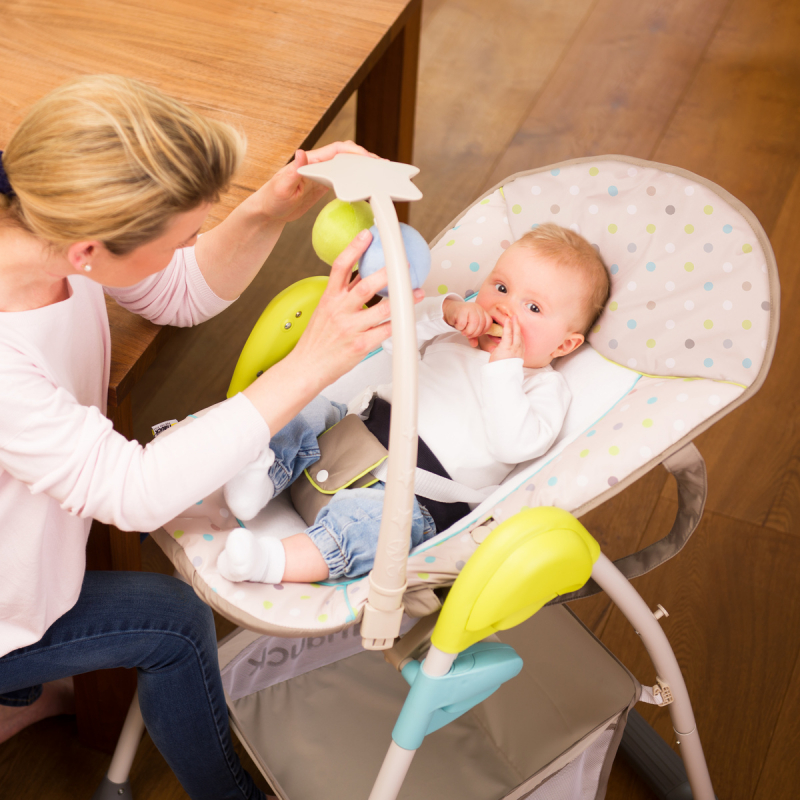
Why night feedings are needed
Night feedings are not a whim, but a necessity for the normal development of the baby. First of all, they are needed by the child, and then by the mother. The main reasons why a child needs to wake up at night include the following:
- physiological immaturity. Compared to adults, children's metabolism is very fast. This is due to the active growth and development of the baby. In addition, both formula and breast milk are absorbed very quickly - on average, in 2-4 hours.
- Features of lactation. The amount of milk in the mother is regulated precisely by feeding at night, since the hormone prolactin is actively produced at this time of day. If a woman wants to breastfeed a baby, at least one nightly application is necessary.
- evolutionary mechanisms. According to one hypothesis, night waking is an evolutionary mechanism that protects the baby from sudden infant death syndrome.
- Compensatory.
 If the mother removes daytime feeds, the baby may begin to wake up more often at night to compensate for the lack of daytime feedings. This is more relevant for children on breastfeeding one year old and older.
If the mother removes daytime feeds, the baby may begin to wake up more often at night to compensate for the lack of daytime feedings. This is more relevant for children on breastfeeding one year old and older.
If night waking does not cause inconvenience to mother and baby, then there is no need to specially clean them. You can wait until the baby's nervous system matures and he refuses such feedings on his own.
� When the baby is ready to leave night feeds
The ability to sleep through the night without waking up for a night snack develops as the baby's nervous and digestive systems mature. Attempts to reduce nighttime feedings before this point can end in failure, exhaust the mother and cause sleepless nights for the whole family.
The following terms are considered physiological:
| Type of feeding | When do night feeds end? |
| breast | A breastfed infant stops eating at night around 18–24 months of age. |
| mixed | Depends on what kind of food (formula or breast milk) prevails in the baby's diet. Age can vary from 9 to 24 months. |
| artificial | Formula is considered a heavier product, so formula-fed babies may stop eating at night as early as 9-12 months. |
Some babies, whether breastfed or formula-fed or mixed-fed, may start sleeping without waking up for nighttime feeds as early as 6 months. If the mother has enough milk, and the baby is gaining weight normally, you do not need to specifically wake the baby to feed him.
Important! Night feedings are the key to successful lactation. If the baby of the first months of life does not wake up at night, you need to offer the breast to a sleepy baby. This stimulates the production of milk and will help to avoid problems with its quantity.
How to stop feeding your baby at night on EW
It is much easier to remove night feedings from a baby on artificial feeding than on breastfeeding. This is due to the fact that a baby on IV immediately gets used to the schedule, and with a greater nutritional value of the mixture, and less difficulty with its replacement. On average, babies who eat formula wake up only 2-3 times per night, so it will not be difficult to refuse such a number of feedings.
This is due to the fact that a baby on IV immediately gets used to the schedule, and with a greater nutritional value of the mixture, and less difficulty with its replacement. On average, babies who eat formula wake up only 2-3 times per night, so it will not be difficult to refuse such a number of feedings.
However, weaning from nighttime eating should begin no earlier than 6 months. By this age, the brain of children in general is ready to sleep without awakening from 6 to 8 hours. What can be done to reduce the number of feedings?
- If the mother practices co-sleeping, you should not combine moving the child to the crib and accustoming to uninterrupted sleep at night. It is better to reduce the number of wakings first, and then move the baby to your bed.
- If the baby has entered a clear mode, you can gradually increase the intervals between night feedings. You can move them no more than half an hour at a time.
- When the baby asks for food at night, offer him water first and only then formula.
 Perhaps he wakes up from thirst, not from hunger. This approach will help increase the intervals between feedings.
Perhaps he wakes up from thirst, not from hunger. This approach will help increase the intervals between feedings. - After a year, a hearty dinner helps to improve sleep. Feed your baby porridge or porridge with meat 2-3 hours before bedtime. Such food is digested for a long time and will help the baby sleep better.
It is important to remember that the reduction in feeding should not be accompanied by tears and tantrums of the baby. Restless night sleep and discomfort will cause the baby to wake up more often.
Weaning from night feeds should not be a problem for the baby and other family members. Our doctors will remotely advise on the features of children's sleep and help you choose the right moment for weaning from night feedings.
How to remove night feedings with breastfeeding
The regimen of children who are exclusively breastfed is different from the regimen of children who are fully or partially artificially fed.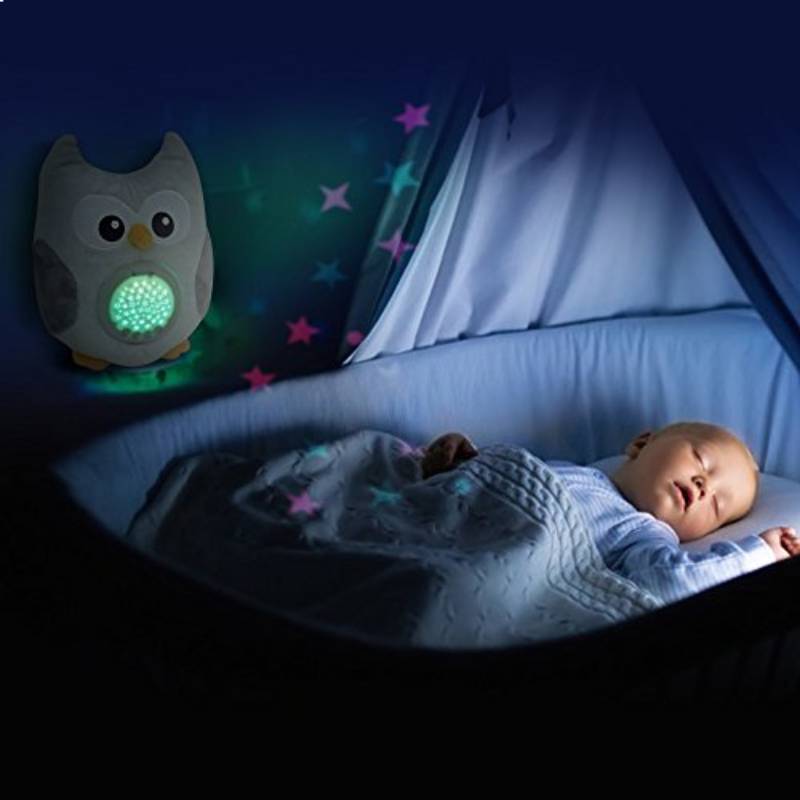 For children on IV, night feedings, rather, are a consequence of the characteristics of the child's psyche and metabolism. For children on breastfeeding, they are rather a necessity.
For children on IV, night feedings, rather, are a consequence of the characteristics of the child's psyche and metabolism. For children on breastfeeding, they are rather a necessity.
It is at night that the hormone prolactin is produced, which regulates the production of milk in the mother. If you do not feed your baby at night or leave such feedings too early, this will directly affect the amount of milk and, as a result, the development and growth of the baby.
It is believed that during weaning, night feedings are the last to stop. However, you can reduce the number of nightly attachments before the mother decides to complete breastfeeding. What can be done for this?
- If the mother practices co-sleeping, moving the baby to her crib will help reduce the number of nightly attachments. At first, you can put a baby bed with the side removed to the parent one and shift the baby after he falls asleep. Then the side rises, and the bed moves away.

- After a year, giving up or reducing the number of night feedings helps a hearty dinner and a bowl of water instead of breastfeeding at night. You can also give kefir or a mixture at night.
- The number of nightly attachments is also affected by daytime feeding. If the mother cancels too many daytime attachments and severely restricts the baby, he can compensate for the lack at night. Therefore, if the mother does not plan to completely cancel breastfeeding, it is better to allow the toddler to apply during the day.
If the mother does not plan to stop breastfeeding in the near future, then it is better to postpone weaning from night feedings to a more suitable time for this and wait for the moment when the baby himself refuses nightly feedings. After a year, you can teach the child self-attachment. In this case, neither the baby nor the mother practically wakes up at night.
Read also What kind of breastfeeding is considered prolonged
FAQ
How many times does the child eat at night?
+
The number of night feedings depends on the age and type of feeding. Formula-fed babies wake up 2-3 times a night on average. Breastfed babies may wake up more often.
Formula-fed babies wake up 2-3 times a night on average. Breastfed babies may wake up more often.
When do children wake up at night?
+
The baby's brain is not adapted to a long night's sleep. This is believed to be an evolutionary mechanism that protects infants from sudden infant death syndrome. The child begins to sleep more than 6 hours in a row after a year, and all night - closer to three.
What can I do to stop my child from eating at night?
+
You can reduce the number of nightly feedings by moving the baby to a separate bed, starting to feed a denser dinner and gradually increasing the intervals between nightly attachments.
When should a baby be weaned?
+
The World Health Organization recommends breastfeeding or formula feeding until two years of age if it is comfortable for both mother and baby. If a woman decides to wean the baby from the breast earlier, you need to replace the breast mixture.
If a woman decides to wean the baby from the breast earlier, you need to replace the breast mixture.
Is it necessary to wean the baby from the breast if he does not sleep well?
+
Weaning does not guarantee that the baby will sleep through the night. For this to happen, his nervous system must mature. Weaning, especially through tears, can cause restless sleep and frequent waking.
Expert opinion
Night feedings are necessary for the normal growth and development of the child. On average, children self-refuse by the age of 9-24 months. However, this does not mean that the child stops waking up at night. The brain fully matures for this only at the age of 3 years. To wean a child from waking up at night, you need to feed him more densely before bedtime, move him to his crib and offer water at night instead of breast or formula.
We publish only verified information
Article author
Pruzhinin Mark Yulievich pediatrician
Experience 30 years
Consultations 1572
Articles 104
An experienced pediatrician with extensive experience and clinical experience in various medical organizations in the field of general pediatrics, resuscitation and anesthesiology and neuroinfection. Works with leading experts, attends international and Russian conferences.
Works with leading experts, attends international and Russian conferences. Breastfeeding at night
Submitted by useradmin on Thu, 08/12/2021 - 21:23
In the first days or even weeks, the baby has not yet established a diet and sleep pattern; periods of sleep and wakefulness alternate, while the total daily sleep duration decreases month after month. Frequent breastfeeding contributes to the constant formation of milk and its timely removal from the breast.
During the first weeks, most prolactin, the main hormone needed for milk production, is produced at night. The stomach of a newborn is small and cannot hold large amounts of milk. Due to its composition, breast milk is quickly digested, so the baby quickly becomes hungry again. During night feedings, a newborn receives a third of the total daily calorie intake.
Do I need to wake my baby up for a night feed?
Sometimes the baby may sleep too much and not wake up to eat, so he does not get enough food. This state of affairs can turn into a vicious circle: the less the child eats, the more he sleeps. In the first six weeks of life, babies need 8-12 breastfeeds per day. If the child sleeps a lot during the day, do not create ideal conditions for him to sleep (silence, darkened room). As soon as you notice the first signs of hunger in your baby, it's time to feed him. During this period, you need to especially monitor the well-being of the child and measure his body weight more often.
This state of affairs can turn into a vicious circle: the less the child eats, the more he sleeps. In the first six weeks of life, babies need 8-12 breastfeeds per day. If the child sleeps a lot during the day, do not create ideal conditions for him to sleep (silence, darkened room). As soon as you notice the first signs of hunger in your baby, it's time to feed him. During this period, you need to especially monitor the well-being of the child and measure his body weight more often.
If the baby is healthy, over six weeks old, and gaining weight well, it is not necessary to wake him up for night feeds unless you urgently need to empty your breasts.
How can I prolong my child's sleep at night?
Here are some tips to help your baby sleep longer and reduce the number of nighttime feeds:
- Breastfeed more often; try to feed him more often during the day and in the evening: this way he will get enough food during the day and will not wake up from hunger at night.
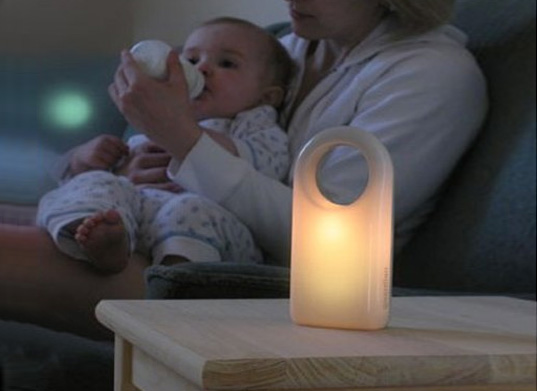
- Gradually increase the child's periods of wakefulness; bathe him and play with him in the evenings, gradually establishing a sleep schedule.
- If you go to bed a few hours after your baby falls asleep, try breastfeeding before going to bed. Babies usually eat a little and then go back to sleep.
- If the baby wakes up at night to eat, feed him in a quiet and dark room. If the diaper is not too wet or soiled, and if the baby does not have diaper rash, do not change it.
After feeding, put the baby back in the crib; It's not safe for him to sleep in the same bed with adults!
Gradual elimination of night feedings
If milk and other sugars are present in the baby's mouth at night, his teething teeth can be damaged, which has far-reaching consequences. Every ritual that you do with your child before bed turns into a habit, without which he will not be able to fall asleep in the future. If the baby is over six months old and you are sure that he is getting enough food during the day, try to stop feeding at night.
If the baby is over six months old and you are sure that he is getting enough food during the day, try to stop feeding at night.
Here are some tips to make this transition smoother:
- If your baby suckles for a short time at night (less than 5 minutes), instead of feeding, try calming him down in another familiar way - shake, sing a song, etc.). It may take a few days for the child to get used to the new routine. Stock up on patience.
- If night feedings are still long and last as long as daytime feedings - more than 5 minutes, you can gradually reduce this time over 5-7 nights.
- There are many reasons why a child wakes up at night. Since you are already pretty tired from the interrupted night's sleep, you immediately offer the breast to the awakened baby, and he develops the habit of sucking the breast to calm down. First, try to calm him down in a different way. In most cases, when a child wakes up due to anxiety, and not from hunger, you will be able to simply rock him; but sometimes he won't rest until he gets the breast.

- One of the tactics is when the baby wakes up at night during the gradual cessation of night feedings, ask the father to take him in his arms and calm him down.
Should night feedings be stopped?
Every child is different. Some stop eating at night at four months, others at two. Your child will stop waking up at night to eat when he doesn't have such a need and when he is developmentally ready for it. You should listen to your baby's needs so you know when it's time to stop nighttime feedings.
The decision to phase out night feeds also depends on the parents; If you're tired of waking up multiple times during the night, try to end your nighttime feeds when your baby is six months old if he's healthy and well.
Whether you view nighttime breastfeeding as a natural part of your baby's development or as a problem depends on your expectations. First you need to get to know your child, his needs and desires.


